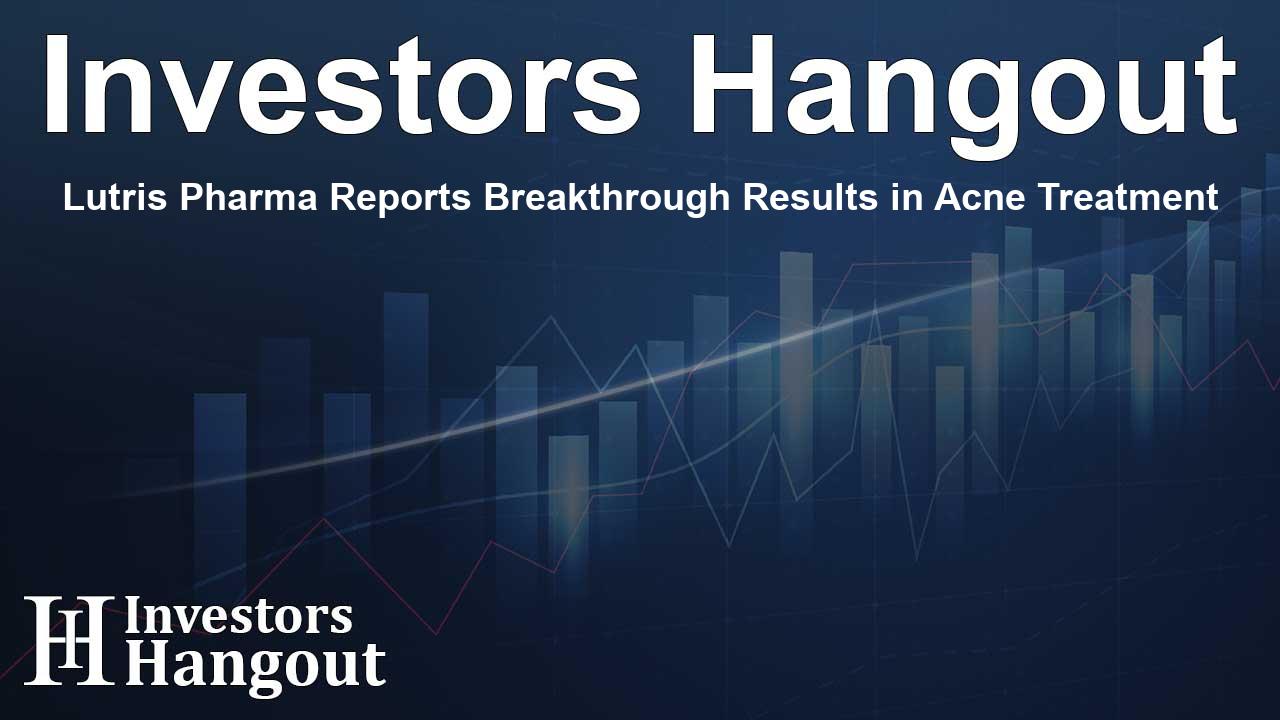Lutris Pharma Reports Breakthrough Results in Acne Treatment

Promising Results for LUT014 Gel in Acneiform Rash Treatment
Lutris Pharma has unveiled remarkable data from its Phase 2 trial for the LUT014 gel, demonstrating significant efficacy in treating acneiform rash related to anti-EGFR cancer therapy. This key trial focused on improving the quality of life for cancer patients experiencing skin adverse effects from critical treatments like cetuximab and panitumumab.
Understanding the Necessity for Effective Skin Treatments
Anti-EGFR inhibitors are essential in oncology but often induce severe skin conditions that can force patients to modify their treatment or discontinue it entirely. According to Dr. Benjamin W. Corn, Lutris Pharma's CMO, LUT014 aims to alleviate these dermatological side effects by restoring vital signaling pathways disrupted during treatment. This allows patients to continue their cancer therapies uninterrupted, a crucial aspect of their overall treatment success.
Clinical Trial Overview
The double-blind, placebo-controlled trial enlisted 118 participants undergoing advanced colorectal cancer treatments. Participants, who developed grade 2 or higher acneiform rashes, were randomized to receive higher and lower doses of LUT014 gel or a placebo over a 28-day period. The primary success metric was a significant improvement in skin condition, focusing on patient quality of life.
Exceptional Findings from the Trial
The high dose of LUT014 gel yielded impressive outcomes, particularly showing a 64.3% improvement rate among patients using the gel compared to those on placebo, which only showed a 33.3% success rate. Additionally, the results remained promising across varying dosages, even through the open-label extension phase where 69% of patients reported notable improvements.
Importance of These Results
This trial is a pivotal moment in dermatological oncology treatment, marking the first randomized, placebo-controlled assessment of a therapy for anti-EGFR-induced skin rashes. Dr. Sumant Ramchandra, CEO of Lutris Pharma, emphasized the importance of addressing these side effects, as those benefiting most from EGFR therapies often suffer from severe skin reactions. These findings not only highlight LUT014's potential but also signify a major advancement in cancer care.
Future Developments and Market Impact
Following successful fundraising efforts to enhance the development of LUT014, Lutris is poised to address a critical gap in cancer treatment, where no effective therapies currently exist for EGFR-related skin toxicities. LUT014's innovative mechanism targets the paradoxical effects of B-Raf inhibitors, enhancing patient outcomes while minimizing treatment disruptions.
Conclusion on LUT014 Gel's Impact
Lutris Pharma's dedication to advancing cancer therapy is evident in the continuous development of LUT014 gel. By providing an effective solution for acneiform rash induced by vital cancer therapies, Lutris aims to improve the overall treatment experience for patients battling cancer, ultimately aiming to enhance their quality of life significantly.
Frequently Asked Questions
What is LUT014 gel used for?
LUT014 gel is a topical treatment designed to alleviate acneiform rash caused by anti-EGFR cancer therapies like cetuximab and panitumumab.
What were the results of the Phase 2 trial?
The Phase 2 trial demonstrated statistically significant efficacy, with over 64% of high-dose LUT014 users achieving improvement compared to only 33% for placebo users.
Why is addressing skin toxicities important for cancer patients?
Skin toxicities can severely impact patient adherence to cancer treatments, leading to treatment interruptions or discontinuations, which can decrease overall treatment effectiveness.
What gaps does LUT014 seek to fill in cancer treatment?
There are currently no approved therapies for EGFR inhibitor-associated skin toxicities. LUT014 aims to meet this urgent need in cancer care.
How does LUT014 work?
LUT014 leverages the paradoxical effects of B-Raf inhibitors to promote healing of skin cells affected by AGFR inhibitors, restoring essential signaling pathways.
About The Author
Contact Owen Jenkins privately here. Or send an email with ATTN: Owen Jenkins as the subject to contact@investorshangout.com.
About Investors Hangout
Investors Hangout is a leading online stock forum for financial discussion and learning, offering a wide range of free tools and resources. It draws in traders of all levels, who exchange market knowledge, investigate trading tactics, and keep an eye on industry developments in real time. Featuring financial articles, stock message boards, quotes, charts, company profiles, and live news updates. Through cooperative learning and a wealth of informational resources, it helps users from novices creating their first portfolios to experts honing their techniques. Join Investors Hangout today: https://investorshangout.com/
The content of this article is based on factual, publicly available information and does not represent legal, financial, or investment advice. Investors Hangout does not offer financial advice, and the author is not a licensed financial advisor. Consult a qualified advisor before making any financial or investment decisions based on this article. This article should not be considered advice to purchase, sell, or hold any securities or other investments. If any of the material provided here is inaccurate, please contact us for corrections.
